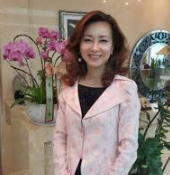Professor Kyungbin Park
 Biography
Biography

Kyungbin Park is a full professor in the Department of Early Childhood Education at Gachon University, Korea. She has worked to implement the law for gifted education in Korea, and is a member of the advisory committees to several national organizations in Korea on gifted education. Her main interest areas are in creativity, intelligence, socio-emotional development and gifted education in early childhood. She was elected as the President of the Asia-Pacific Federation for Giftedness (2012~2014 and 2016~2018), and is now a member of the executive committee. She also served as the President for Korean Society for the Gifted (2012-2015). She has written articles and books on identification, evaluation, trends of research on gifted education, and characteristics of gifted students in Korea, as well as intercultural comparisons in gifted education. She has also developed assessment tools to aid in identification and instruction for gifted learners
 Invited Symposium Title
Invited Symposium Title
Case studies on artistically gifted twice-exceptional students in Korea
 Invited Symposium Description
Invited Symposium Description
The term twice–exceptional learner was coined in the mid-1990s to refer to students with gifts and talents in one or more domains in conjunction with one or more disabilities. Twice-exceptional students have unique needs as they maintain both characteristics of giftedness and disability. No singular profile exists for twice exceptionality because of its wide range of traits and combinations of giftedness and disabilities, thus the ways of supporting them can vastly differ.
The topic of twice–exceptional learners is still underexplored among many societies and researchers. In South Korea, the first article introducing the concept of twice–exceptional learners and their educational intervention came out in 2002, and only 21 peer-reviewed journal articles were published over the following 20 years, yielding on average only one study per year. Lack of special attention to twice-exceptional learners may pose a challenge to their talent development and the contributions they could make to human society at large.
In this presentation, despite the limited awareness in Korean society for twice exceptional children, case studies of twice–exceptional young artists in Korea will be introduced. The study will be focused on how these youngsters’ talents came to fruition and discuss some ways our society can nurture their unique giftedness.